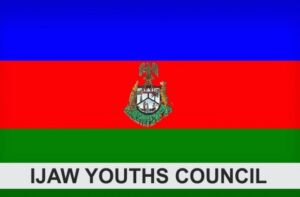
21,000 flood victims to benefits from ECOWAS Humanitarian aid – NRCS
The Nigerian Red Cross Society (NRCS) says, no fewer than 21,000 persons will benefit from the ECOWAS stabilisation funds for victims of flood disaster across six most affected states.
Mr Abubakar Kende, the Secretary General of NRCS disclosed this on Thursday in Abuja during an inception meeting of the ECOWAS humanitarian support for people affected by floods in Adamawa, Anambra, Oyo, Kebbi, Kogi and Rivers states.
The News Agency of Nigeria (NAN) reports the meeting themed, “Building Stronger and Resilient Families in Nigeria’ was organised in collaboration with the World Food Programme (WFP) and the Federal Ministry of Humanitarian Affairs and Poverty Alleviation.
NAN also reports that, during the meeting, ECOWAS presented a cheque of 906, 200 Dollar to the Red Cross towards effective implementation of its stabilisation programme.
Kende represented by the NRCS Director of Disaster Management Mr Benson Agbo, said the stabilisation funds would be used to cater for the victims of flooding
“In our effort to alleviate the sufferings of the vulnerable in Nigeria, we have signed a tripartite agreement with the ECOWAS and the Humanitarian Ministry.
“The agreement aimed at supporting communities affected by flood disasters in Adamawa, Anambra, Oyo, Kebbi, Kogi and Rivers states.
“We are ready to go to these selected communities to deliver essential humanitarian aid to 21,000 individuals in 3,500 Households across these six states that are worst hit.
“This gesture will ensure that the Flood survivors return to their normal lives’’ he said.
Kende appealed to stakeholders to provide the necessary support to the victims to boost their socio-economic wellbeing.
“We encourage relevant stakeholders to act and provide the necessary infrastructure needed to control and mitigate the effects of flooding thereby improving peoples’ lives.
“As implementing partner, the Nigerian Red Cross Society will execute the project in the six states, ensuring timely and efficient delivery of assistance and maintaining transparent process’’ Kende said.
On his part, the Deputy Country Director of WFP in Nigeria, Mr Guy Adoua, said the Programme had built an enduring structure, critical to delivering food and nutrition to vulnerable people.
“We have not only addressed immediate food and nutrition needs of these vulnerable communities but we made significant strides in strengthening the resilience of these communities.
“Our work in Nigeria during 2021-2022 has demonstrated the profound difference that coordinated efforts and strategic partnerships can make.
“ WFP will provide a multi-dimensional assistance to 14,394 persons in Katsina and Sokoto states using the ECOWAS funds,’’ Adoua said.
According to him, this will include food and nutrition support, building capacity for state systems, psycho-social support to promote social cohesion and peace for a period of six months.
Earlier, the ECOWAS Commissioner, Human Development and Social Affairs Prof. Fatou Sarr, said, ECOWAS will continue to support member-states towards improving the livelihood of their citizens.
“Our focus will continue to be people-centred; therefore, projects such as this will continue to be the focus of the Management of ECOWAS programming.
“We invite you all to continue to accompany us to change the lives and livelihoods of our peoples for good, especially those at the grass roots.
Sarr therefore used the event to present a cheque of one million dollar to the WFP to ensure effective implementation of ECOWAS stabilisation programme to persons of concern by providing food and nutrition especially to victims of violence in Nigeria.
Also speaking, Mr Valentine Ezulu, the Director, Humanitarian Affairs in the Federal Ministry of Humanitarian Affairs and Poverty Alleviation assured stakeholders of federal government`s determination to provide mechanism towards mitigating the impact of flood and consequences.
While appreciating the ECOWAS’ intervention in Nigeria, Ezulu said, the project will help to improve the food insecurity and malnutrition of the vulnerable groups in the affected states.
He recalled that the 2021 phase one beneficiaries of the ECOWAS Food and Nutrition support were Borno, Katsina, Zamfara and Sokoto states.




